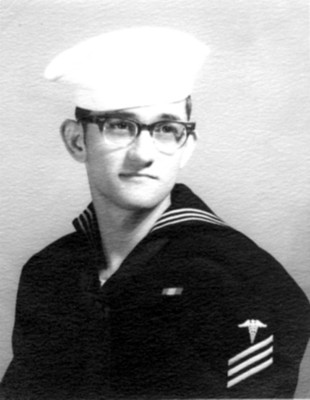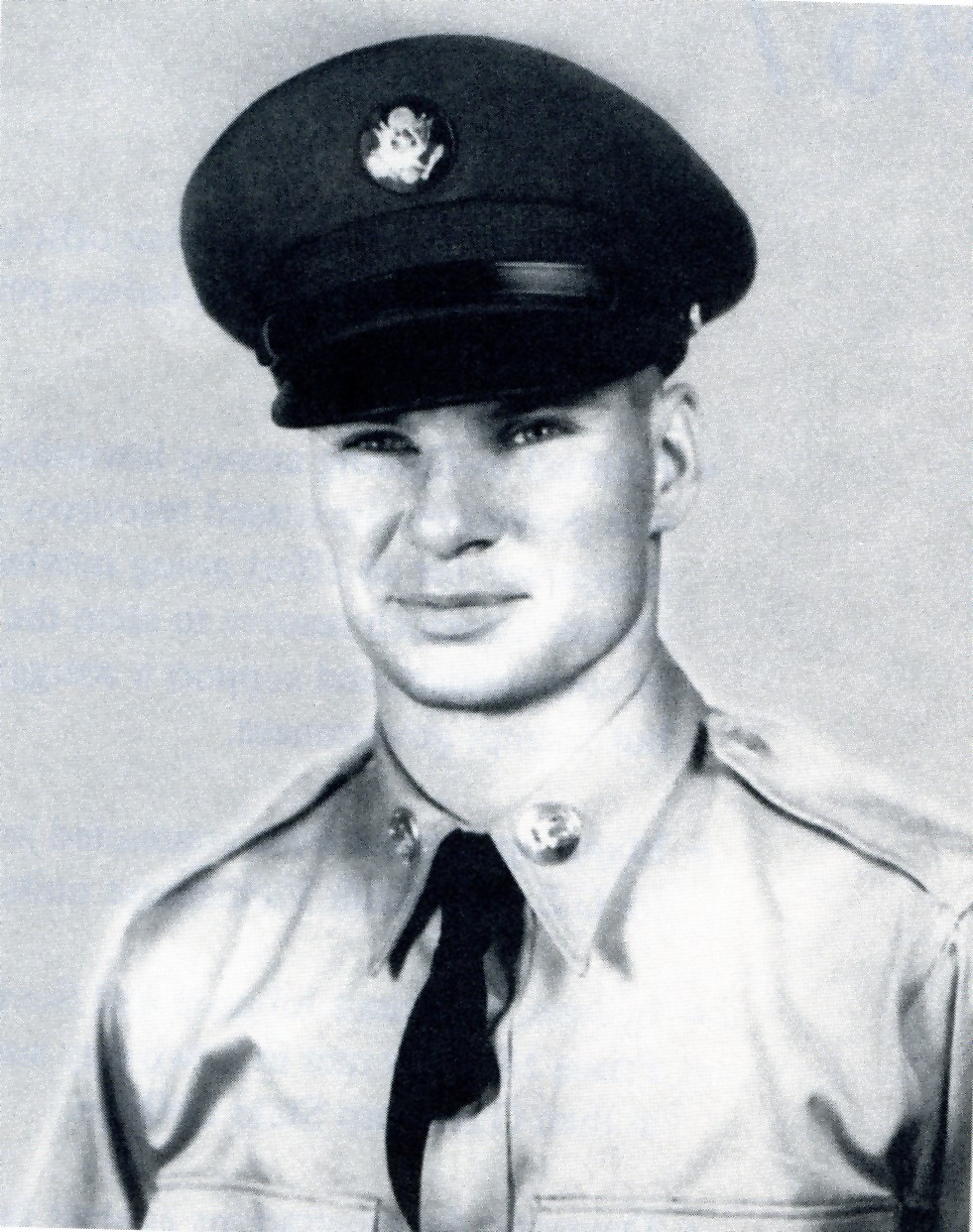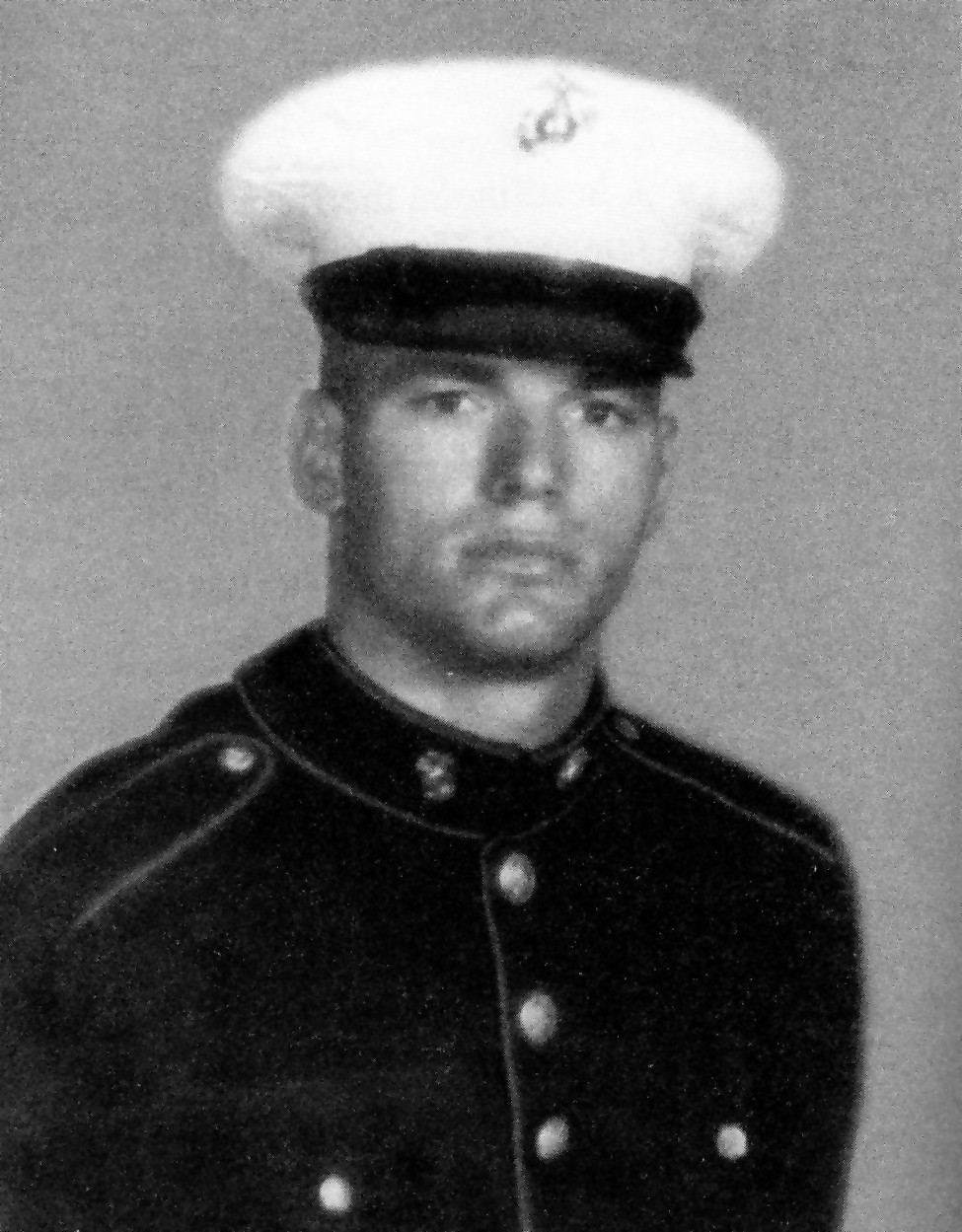
ROBERT K GILLIES - HM3
- HOMETOWN:
- mantua
- COUNTY:
- Gloucester
- DATE OF BIRTH:
- March 23, 1948
- DATE OF CASUALTY:
- April 21, 1969
- BRANCH OF SERVICE:
- Navy
- RANK:
- HM3
- STATUS:
- KIA
- COUNTRY:
- South Vietnam
Biography
Robert K. Gillies was born on March 23, 1948. His home of record is Mantua, NJ.
He enlisted in the US Navy and attained the rank of Hospital Corpsman Third Class (HM3).
Gillies was killed in action on April 21, 1969.
Robert
March 23, 1948-April 21, 1969
HM3, Navy Mantua, NJ
In the sixties, the Gillies home in Mantua was a happy place. There were seven children, and two very dedicated parents. Hard work, order, and discipline were stressed, but the key ingredient was love.
Betsy Gillies, still living in Mantua, was a cook at then Glassboro State College (now Rowan University). "I worked full time since 1965," she says. "But I made sure there was always someone in the house when my kids came home from school. I had some help from my sisters. But I think Stanley and I did a pretty good job raising them because they never really got into real trouble. All my kids were devilish, but good. It was a fun household. I ran those kids all over the place. But I would rather pick them up from wherever they were than at the police station."
The Gillies family was rich with military tradition and service. Stanley survived four landings in the South Pacific as a Navy corpsman, attached to the Seabees in World War II. His cousin was killed at Iwo Jima. His three sons were also to serve their country.
Robert and Dennis Gillies were identical twins. They graduated from Clearview High School in 1966. There were also four girls and another boy rounding out the clan.
Robert joined the Naval Reserve while still in school. He worked at the Philadelphia Naval Hospital, caring for the wounded of Vietnam. He decided early on to make the Navy his career, and to become a corpsman. He went to full active status right after graduation and was assigned to the destroyer, USS Richard E. Byrd, as an OJT corpsman. He then received his formal medical training at the Great Lakes training center in Michigan.
Dennis joined the Marine Corps after graduation. He was sent to Vietnam in 1967 and was twice wounded.
"We used to dig each other," Dennis now says. "He would brag about the hot meals and warm beds in the Navy. I would tell him that I could walk much farther than I could swim."
Dennis also remembers how Marines treated their corpsmen.
"You didn't want your corpsman exposed to fire," he says. "We used to tell our guys, 'No house calls. Hide behind something. Just stay where you are. We'll bring the wounded to you.' If I was hit, I wanted to have a corpsman there. But when all hell broke loose, everybody did what they had to."
After learning of Dennis' first firefight in Vietnam, Robert wrote a letter to his parents from his training school at Great Lakes.
I can't begin to tell you how sorry I am that I can't be home for this Thanksgiving. But I have my own thanks to give. I know the difference between right and wrong and I will always do my best to choose right. Most of my ideals stem from you.
When we were kids, you never gave us flags to wave or patriotic songs to sing. And yet, when my country is at war, I feel the most important thing I have to do is go. I believe the same thing is true of Dennis. His spirits may be dampened a bit by what he has seen but he wouldn't get out of it if he could...I wonder if this will teach me my goal in life. I wonder if, when my time comes to climb out of the hole, I will go.
When his training was complete, Robert was sent back to the Philadelphia Naval Hospital where he worked in the orthopedic department. After about a year, he volunteered for Vietnam. His twin had already served thirteen months there, and Robert felt it was his duty to do the same.
"Robert didn't have to go," his mother says. "Dennis had already been there. They were not going to make Rob go, too."
"He would write home often," she continues. "He never forgot birthdays or anniversaries." She chuckles, then adds, "Dennis would only write when he thought about it, which wasn't too often."
"When Robert decided to be a corpsman, he had to undergo some Marine training," says Dennis. "He couldn't believe how much tougher it was. In the Navy, they were treated like intelligent human beings. In the Marines, you weren't."
Robert arrived in Vietnam in February of 1969. He was assigned to B Company, 1st Battalion, 5th Marines, in Quang Nam Province.
Barely two and a half months into his one-year assignment, Robert's time did come...and he went. His posthumous Silver Star citation reads, in part:
On the morning of 21 April 1969, Petty Officer Gillies' platoon was conducting a search and destroy operation...when the Marines came under a heavy volume of small arms and automatic weapons fire from a numerically superior North Vietnamese Army force occupying fortified emplacements and sustained several casualties. Disregarding his own safety, Petty Officer Gillies unhesitatingly left his covered position and fearlessly maneuvered across the hazardous area to the side of a wounded Marine who was lying in a position dangerously exposed to the intense enemy fire. Ignoring the hostile rounds impacting near him, he was skillfully administering first aid to the injured man when he was seriously wounded in the jaw. Despite his painful injuries, he steadfastly remained with his wounded comrade and resolutely continued to render effective medical treatment until his own injuries weakened him to the point of exhaustion. Although unable to speak, he calmly directed the efforts of two Marines in resuming the treatment of his patients, showing them the proper items of equipment to utilize until Petty Officer Gillies succumbed to his wounds. By his courage, sincere concern for the welfare of his comrades and selfless devotion to duty, Petty Officer Gillies inspired all who observed him and upheld the highest traditions of the Marine Corps and of the United States Naval Service. He gallantly gave his life in the service of his country.
Bruce Cader, now living in Santa Rosa, CA, was a member of B Company. He remembers a dedicated corpsman, a friend, and an indelible image in his mind. "He was so very brave," he says. "We were ambushed and fighting for our lives. Robert answered the call and, unfortunately, was killed. When he was dying, he looked at me and gave me 'thumbs up.' He was surrounded by three Marines at his side, comforting him. He was never alone and felt no pain."
The next day, the Gillies received the bad news. "I thought the car was one of my sisters," Betsy remembers. "I'll never forget realizing it was the notification officers."
Only a strong, supportive family could have sustained the tragic loss. The house filled with relatives as the sympathy poured in.
Dennis recalls some far-reaching consequences. Stanley died less than three years later. "That's what killed my father," he says. "He talked Robert into becoming a corpsman because he would have a lot of respect, which they do. He had been through the Pacific and I had come through Vietnam okay. He thought it was all his fault."
For a Memorial Day ceremony, twenty-one years after losing a son in Vietnam, Betsy Gillies spoke with eloquence and pride.
It is good that a special day is required for remembering. A day of honor is needed so that every American can take the time to reflect on the memory of our fallen countrymen. But a special day is not required for the veterans of a war or for the survivors of a war. The veterans will never forget Joe, or John, or Mac...men they left behind in a farmer's field, on a muddy island, a frozen hill, a rice paddy or a hospital ward. The veterans, men and women, do not need parades or speeches to remember a fallen friend.
The survivors do not need a special day either. They are the men and women who stayed at home and prayed for the safety of a husband, a brother, a daughter or a son. Loved ones who never came back. The survivors are the ones who received the dreaded telegram. They are the ones who had to read the words that changed their lives forever; words that could never be recalled.
Let us pray that the sacrifices of our loved ones, of our fine men and women, are not in vain. Let us remember the price we have paid for our freedom. Remember that all of the men and women who have died, gallantly gave their lives for our country. Remember them.
Excerpt from They Were Ours: Gloucester County's Loss in Vietnam
by John Campbell
Used with permission of author
Sources: John Campbell and NJVVMF.
Remembrances
Be the first to add a remembrance for ROBERT K GILLIES
Help preserve the legacy of this hero, learn about The Education Center.
LEARN MORE

